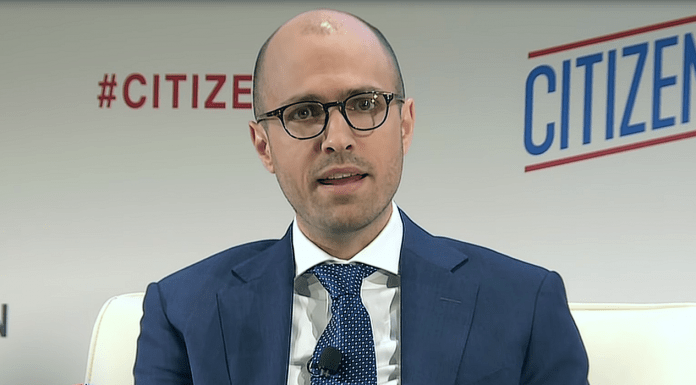(Molly Bruns, Headline USA) New York Times publisher A.G. Sulzberger and top newsroom editors openly admitted to embracing a double-standard when it came to covering conservative issues, according to a former opinion editor.
Former Times Editorial Page Editor James Bennett published a column in The Economist in which he recounted the controversy over his publication of an op-ed by Sen. Tom Cotton, R-Ark., which ultimately cost him his job.
During his tenure, Bennett wrote that he received many complaints from conservative writers about their unfair treatment.
Throughout the Trump presidency, the once-latent left-wing biases of the staff at the Times became more and more evident to Bennett, with colleagues turning to the impulse to either discourage or shut down conservative voices altogether.
“Trying to be helpful, one of the top newsroom editors urged me to start attaching trigger warnings to pieces by conservatives,” he said. “It had not occurred to him how this would stigmatize certain colleagues, or what it would say to the world about the Times‘s own bias.”
After a similar incident he brought the complaint to Sulzberger, who responded by saying “that’s just how it was … and he should get used to it,” Front Page Magazine reported.
Bennett reluctantly relayed the message back to an irate conservative contributor.
“A publication that promises its readers to stand apart from politics should not have different standards for different writers based on their politics,” Bennett recollected in his Economist article.
“But I delivered the message,” he added. “There are many things I regret about by tenure as editorial-page editor. That is the only act of which I am ashamed.”
Bennett published Cotton’s piece in 2020, which was a reaction to George Floyd’s passing and Black Lives Matter riots erupting across the nation.
In publishing Cotton’s article, Bennett hoped that the Times could act as a platform “presenting debate from all sides.”
Until that point, the paper had stuck to articles condemning the idea of utilizing military force to stymie BLM’s violent rage and protect locals from violence, but Cotton held a contrary opinion.
Despite the controversy, Bennett was not the only employee of the paper who wanted the article to be published.
Dean Baquet, the executive editor of the Times, knew that Cotton likely made a similar argument in Congress—and possibly to Donald Trump, the president at the time—and believed Times readers deserved to know about it.
Bennett published the article, and received a call from Sulzberger three days later demanding his resignation.
Comparing his former paper to the Wall Street Journal, he wished that the Times kept the same wall between opinion journalism and news in order to maintain integrity through the political upheaval.
Bennett also assessed the current position of the Times as a precarious one, warning that its far-left bias and hypocrisy had dismantled its credibility—along with its false reporting on stories like the Russia-collusion hoax and Hunter Biden laptop scandal.
“It makes the Times too easy for conservatives to dismiss and too easy for progressives to believe,” he said. “The reality is that the Times is becoming a publication through which America’s progressive elite talks to itself about an America that does not really exist.”

